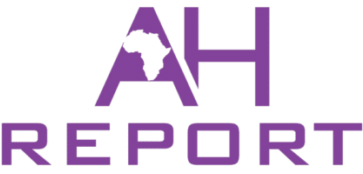Navigating the Hospitality Landscape in West Africa Amidst Inflation: Insights from Maestros Hoteleros

Running a hospitality business in West Africa poses unique challenges, with one of the most formidable being the impact of inflation on the industry. The African Economic Outlook (2023) reveals a concerning trend, indicating a rise in the inflation rate from an average of 9.7% between 2014 and 2020 to 17% in 2022. Nigeria, a key player in the region, is forecasted to experience an alarming inflation peak rate of 25.1%.
This economic landscape requires hoteliers to strategize and innovate to mitigate the adverse effects of inflation. In this article, we delve into the practical implications of this inflationary period and explore how embracing technology can serve as a lifeline for the hospitality industry in West Africa.
Various factors, including the surge in transportation, food, petroleum, oil, and gas prices, have contributed to a high cost of living, decreased purchasing power, and increased operational costs for businesses in West Africa. Such economic challenges necessitate a proactive approach to safeguard the profitability and sustainability of hospitality enterprises.
Embracing Technology: A Game-Changer
In the face of inflation, integrating technology into hotel operations emerges as a strategic move. The application of digital trends can significantly alleviate the negative impacts of inflation on the West Africa’s hospitality sector. Here are ten digital trends that can transform the industry:
- QR Codes: Implementing QR codes for contactless menus and streamlined check-in processes can reduce the financial strain caused by inflation.
- Design App: A well-designed app serves as a centralized platform, enhancing guest experiences, managing reservations, and promoting special offers.
- Seamless Voice-Activated Experiences: Automation of tasks through voice-activated experiences addresses safety concerns and staff shortages. It provides a convenient and effortless way for guests to control their environment.
- Mobile and Contactless Technologies: Streamlining booking processes, offering contactless check-ins and check-outs, and providing mobile apps for enhanced guest experiences can be a game-changer.
- Internet of Things/Smart Rooms: IoT technology enables efficient resource management, personalizes customer experiences. It also contributes to sustainability and guest satisfaction.
- Biometric Identification and Facial Recognition: Enhancing security access and expediting check-in processes, these technologies contribute to a safer and more efficient guest experience.
- Virtual Reality (VR): VR offers virtual tours, marketing opportunities, and a chance for hotels to showcase unique features, attracting potential guests and increasing bookings.
- Artificial Intelligence (AI): AI algorithms can predict demand patterns, enhance customer service through chatbots. Additionally, it optimizes pricing strategies for increased revenue.
- Robotics: Deploying robots can save on labor costs, work 24/7, and provide a consistent level of service. Although the human touch should not be underestimated.
- Green Technology: Implementing eco-friendly practices not only aligns with customer preferences but also optimizes operational expenses, contributing to the overall sustainability of the business.
Adapting to Boost Tourism
West Africa, despite being rich in culture and tourist attractions, receives the least number of tourist arrivals in Africa. To counter this, reducing taxes and charges, as observed in other African regions, can stimulate demand. It can also make the region more competitive and attractive for travelers.
Consumer Behavior and Expectations
Understanding the dynamic nature of consumer behavior is crucial for hoteliers. Present-day consumers in West Africa face challenges like poor online access to hotels and inefficient service standards. However, bridging this gap through the implementation of technology is essential for enhancing consumer experiences and satisfaction.
Conclusion
In conclusion, navigating the hospitality landscape in West Africa during an inflationary period requires adaptability and innovation. Embracing technology is not just a choice but a necessity for staying competitive and ensuring sustained profitability. As an independent hotel, defending your identity and leveraging technology for a seamless guest experience is the key to thriving in both off and shoulder seasons.
To delve deeper into the insights, read the full report on Maestros Hoteleros here.


